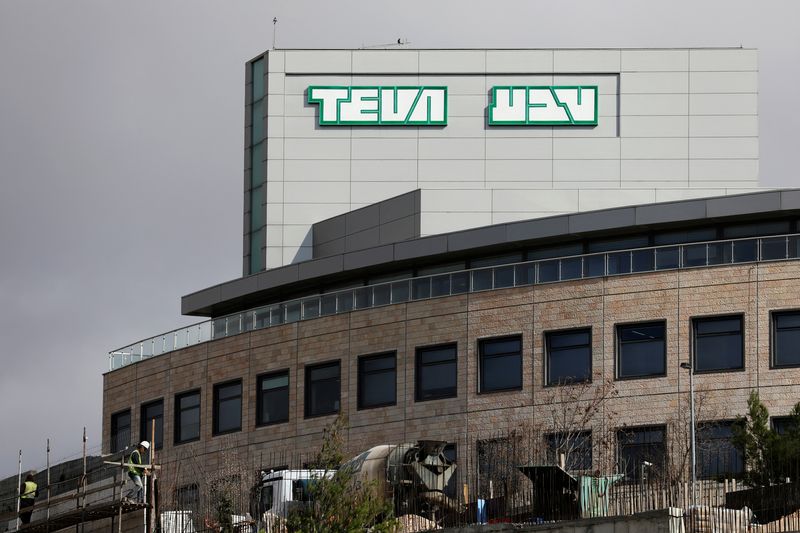By Blake Brittain
(Reuters) -Teva Pharmaceutical and Viatris convinced a U.S. appeals court on Monday to revive their challenges to a patent covering a blockbuster Johnson & Johnson (NYSE:JNJ) schizophrenia drug, giving them a new chance to clear a path to launch cheaper generic versions of the medicine.
The U.S. Court of Appeals for the Federal Circuit said that the last remaining J&J patent covering its Invega Sustenna may be invalid, sending the case back for a New Jersey federal court to reconsider.
A J&J spokesperson said the company will "continue defending the intellectual property of Invega Sustenna."
A Teva spokesperson said the company was pleased with the decision and looks forward to "providing this important low-cost medication to patients as soon as possible."
Representatives for Viatris did not immediately respond to a request for comment on the decision.
J&J sold more than $4.1 billion worth of Invega Sustenna and related drugs worldwide last year, with nearly $2.9 billion in U.S. sales, according to a company report. It sued Teva and Mylan (NASDAQ:VTRS), which is now part of Viatris, for patent infringement over their proposed generic versions of the drug in 2018 and 2019, respectively.

U.S. District Judge Claire Cecchi determined in Teva's case in 2021 that it failed to prove that J&J's patent, covering a dosing regimen for Invega Sustenna, was invalid. Viatris agreed to be bound by Cecchi's decision in its case.
A three-judge Federal Circuit panel threw out Cecchi's decision on Monday and sent the case back to the New Jersey court. The appeals court said Teva may be able to prove that the patent was invalid because the dosing regimen would have been obvious to an ordinary person in the field.